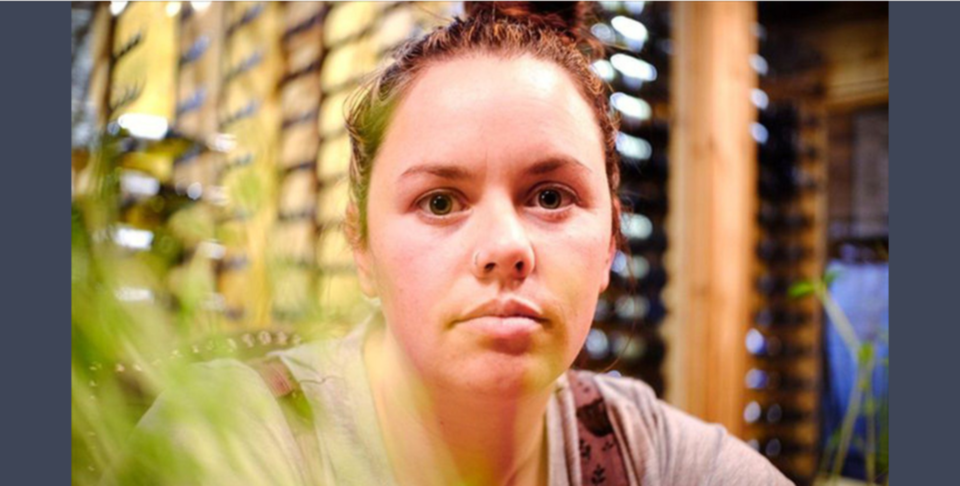Despite growing up around agriculture, nobody ever told Britney Condotta that she could grow up to be a farmer herself.
“For a very long period of time, in the farming community, it was the son of the farmer that would take over the farm and farming practices,” Condotta recently said while bending dried willow into a future Christmas wreath.
There wasn't the mentality, says Condotta, to justify agriculture being the sort of business a woman could get into.
Now, at 32 years old, she farms a bountiful garden full-time under the name of Cultivate Niagara at her parent’s winery, Honsberger Estate. There she produces herbs, greens, Brussels sprouts, tomatoes, eggplant, corn, beets, carrots, broccoli, cauliflower, cabbage and squash for the winery’s restaurant and for preserves.
“I get a real reward out of working with the earth in a really different way than I’ve ever heard men my age speak about it,” she said. “When I talk to women, it’s a joy; they love the physical engagement in the earth.”
One of Condotta’s favourite times of the year is when the garlic shoots emerge from the earth after the last frost – a signal that the growing season has begun.
Considering herself a feminist, Condotta said that feminism in farming “isn’t the absence of man,” but the belief that women “are just as well equipped” for farming as men.
“I don’t think my (gender) makes any difference, it’s just the way my mind works,” she explained.
In her mind, women bring creativity to farming and are stepping up to farm at a time when men seem to be stepping back – a change she believes will save smaller farms and is made possible thanks to an increasing focus on gender equality.
There are, however, still unique challenges facing women in agriculture – such as raising a four-year-old, for one.
The crops don’t simply stop growing, and the work doesn’t disappear. Instead, it’s another task added to the plate she’s trying to balance.
“Being a mother is very difficult; it’s expected of you that when your kid’s sick, you’re off,” she said.
Condotta is forthcoming in saying she still hasn’t come to terms with raising her son, Forrest, while simultaneously producing food, and the priority she feels is given to her husband’s job over hers.
But the challenges of raising children while farming aside, Condotta believes it’s mentality presenting the biggest setback to women getting into agriculture right now.
“There is this delicacy to the moment that we’re living in … I think we need to speak out and we need to be very vocal and we need to be very visual about what we’re doing and how we’re doing it, and be very proud of what we’re doing,” she said.
Her hope is for young girls to see the knowledge, power, innovation and creativity that women bring, and to know with confidence that they, too, can be women in agriculture.
- Jordan Snobelen, Local Journalism Initiative, Niagara This Week



